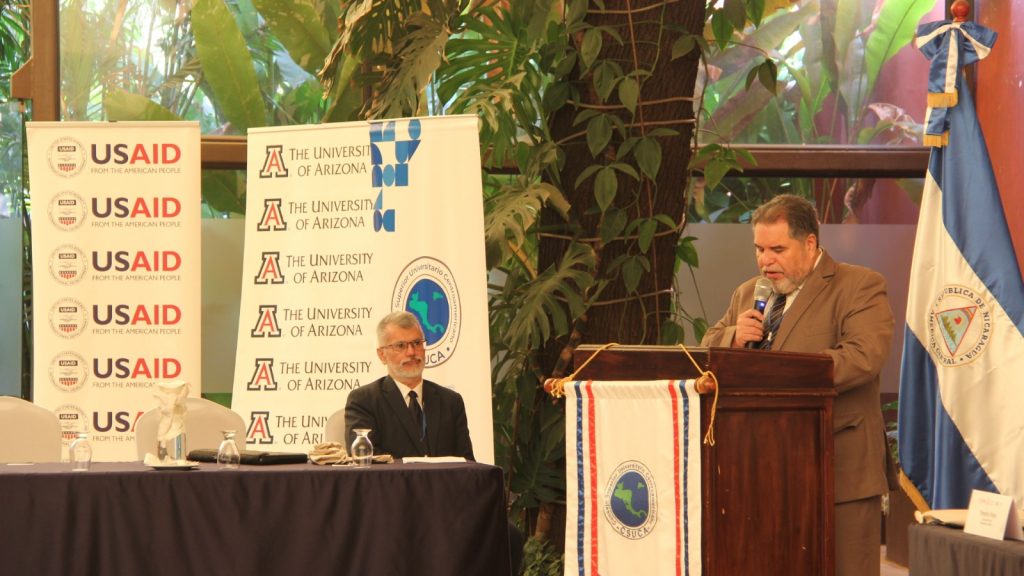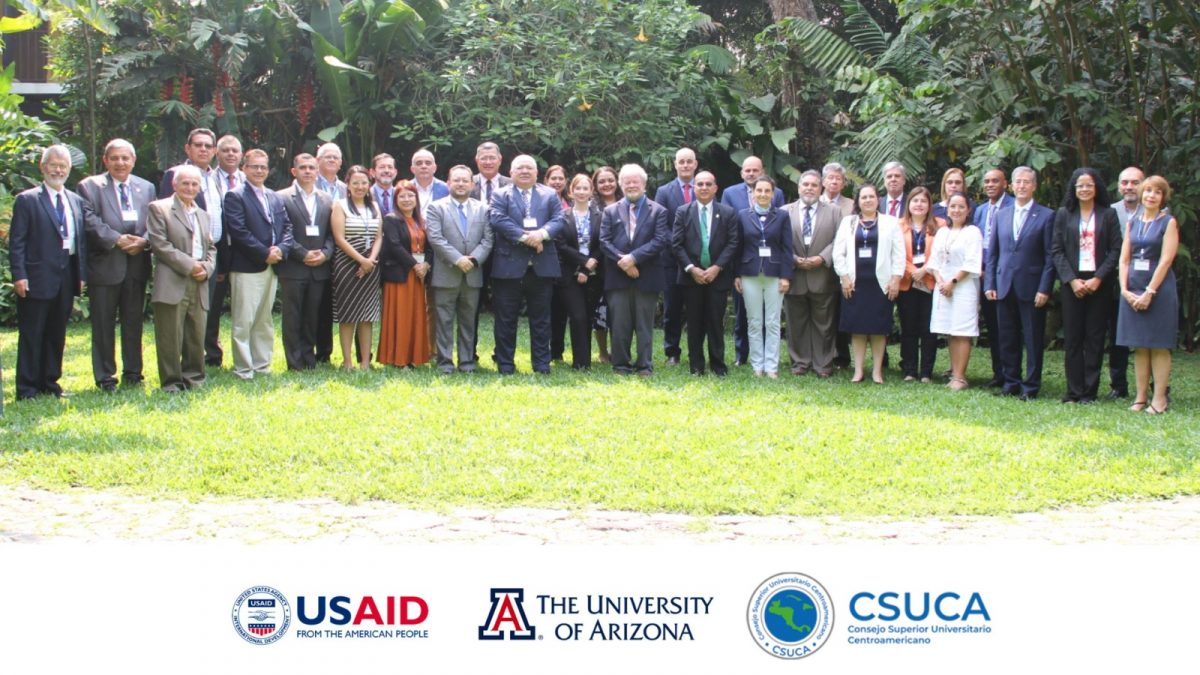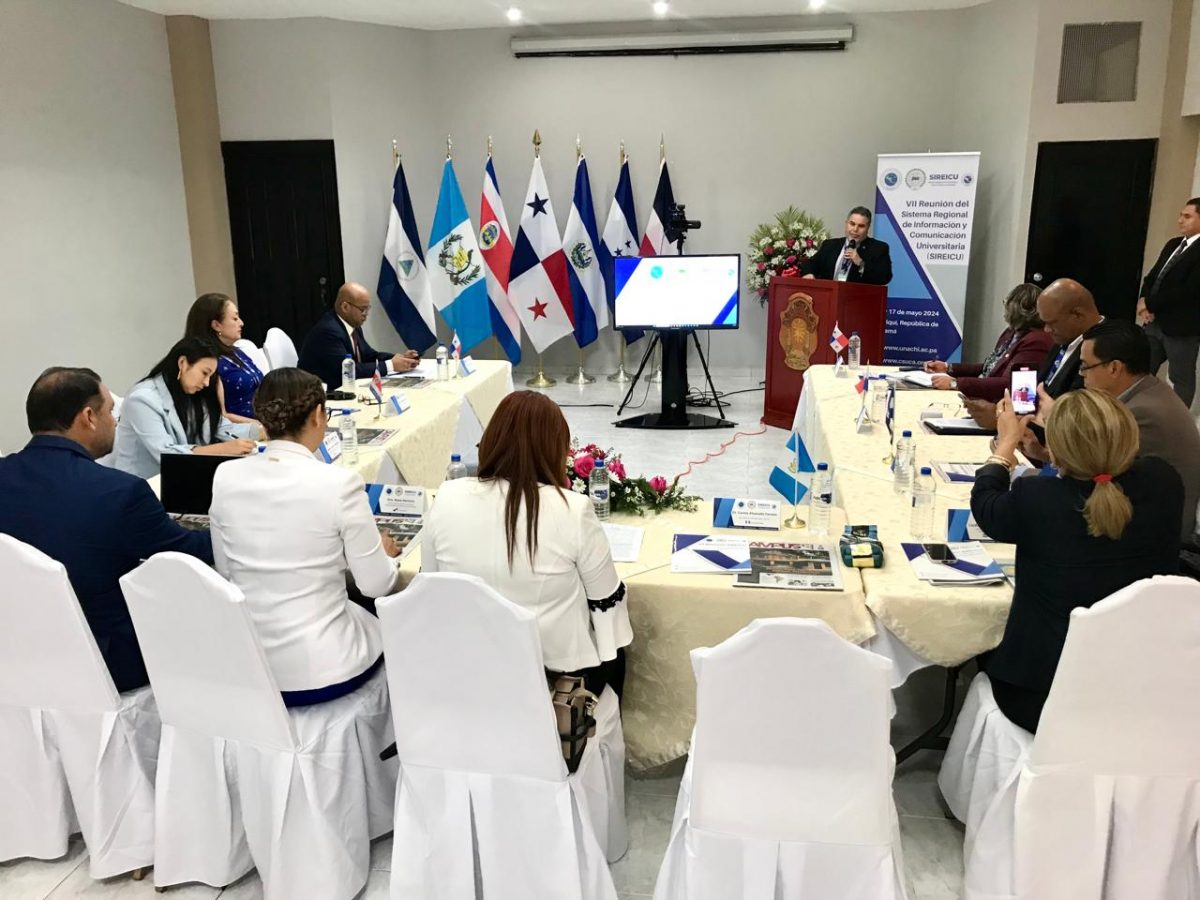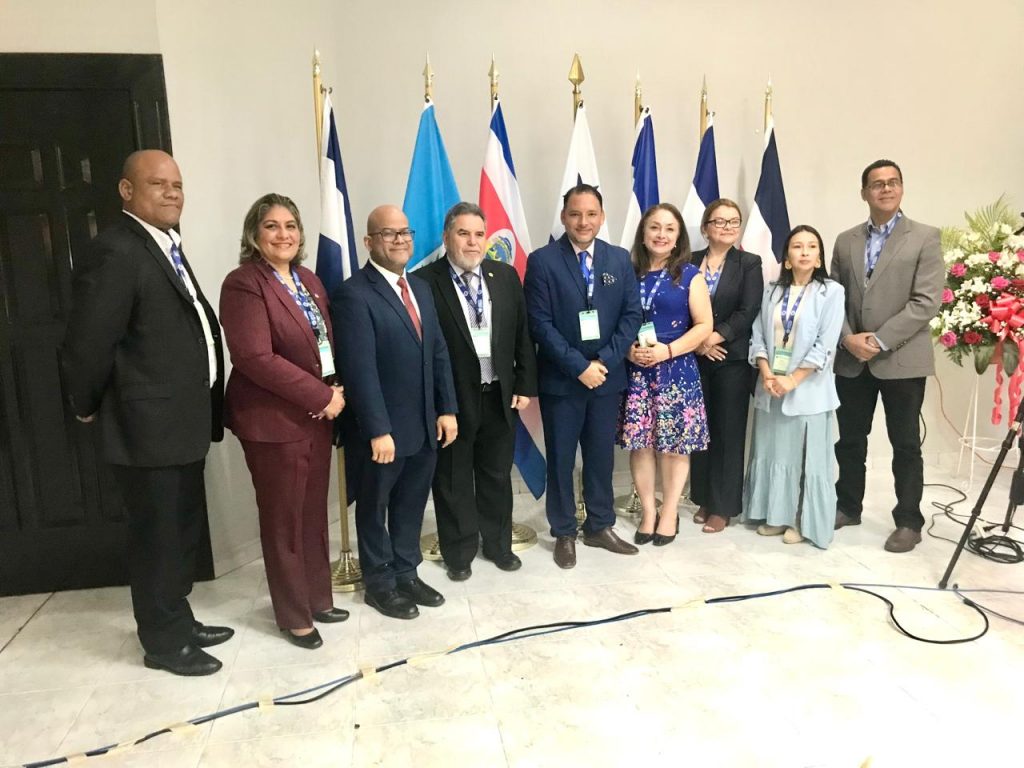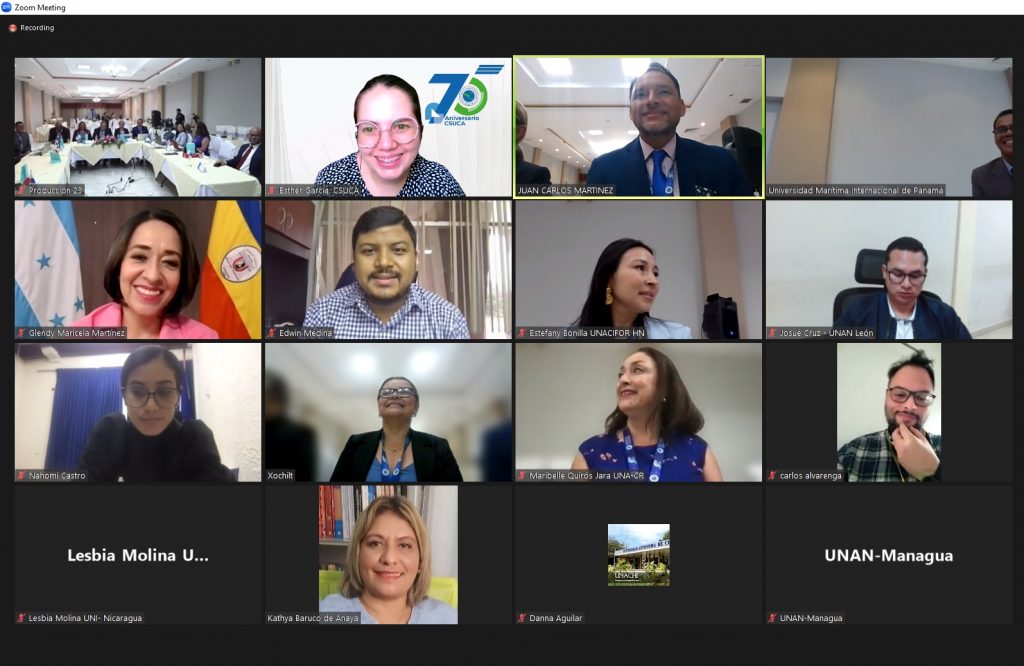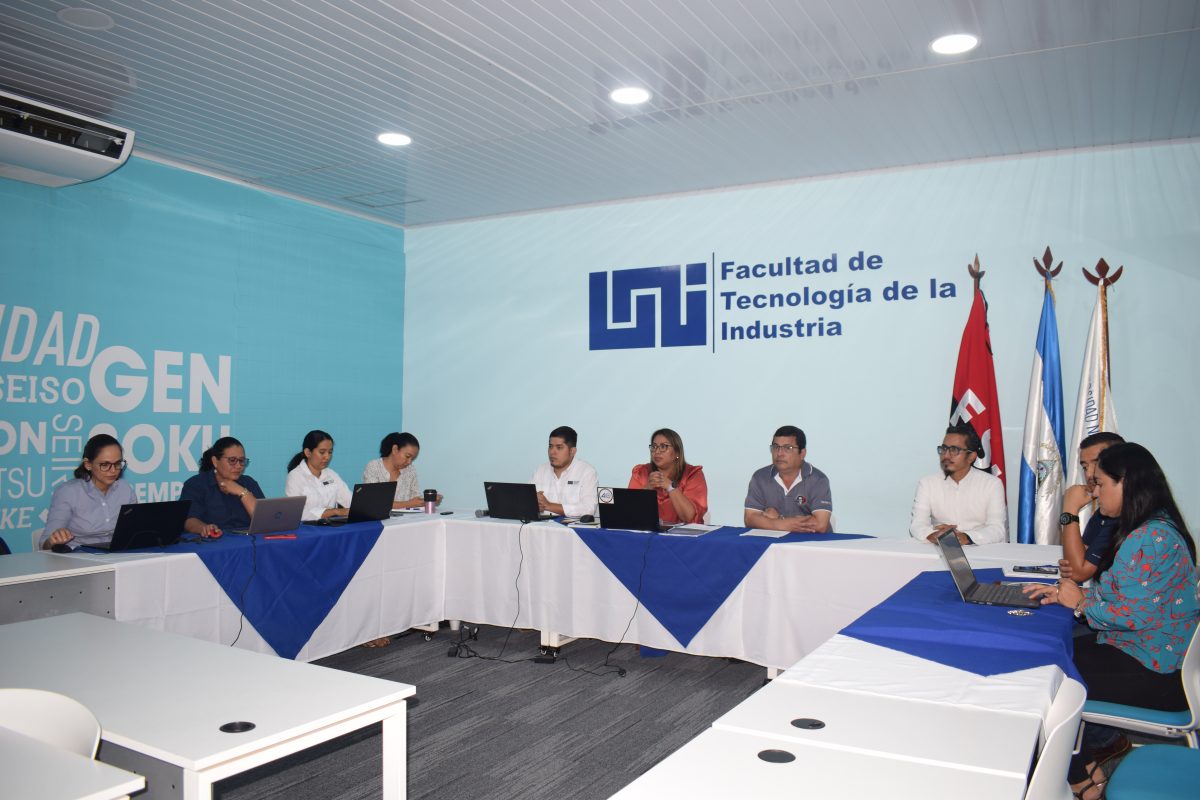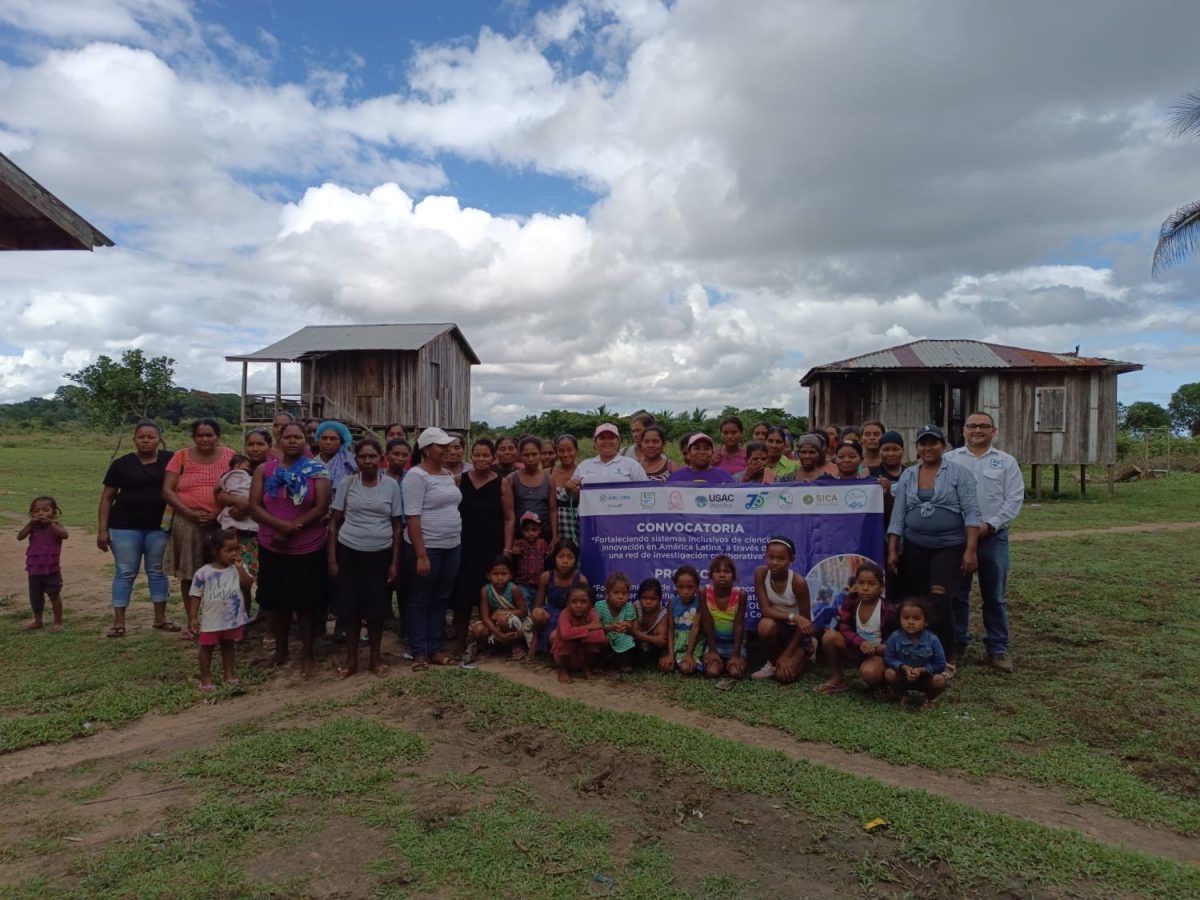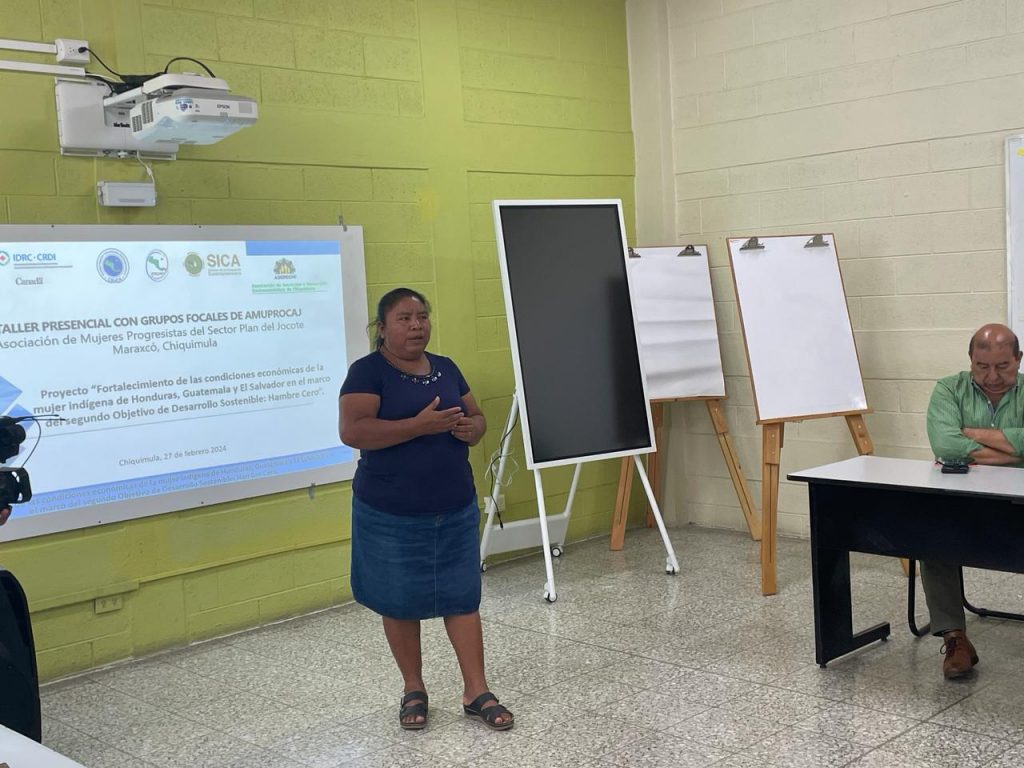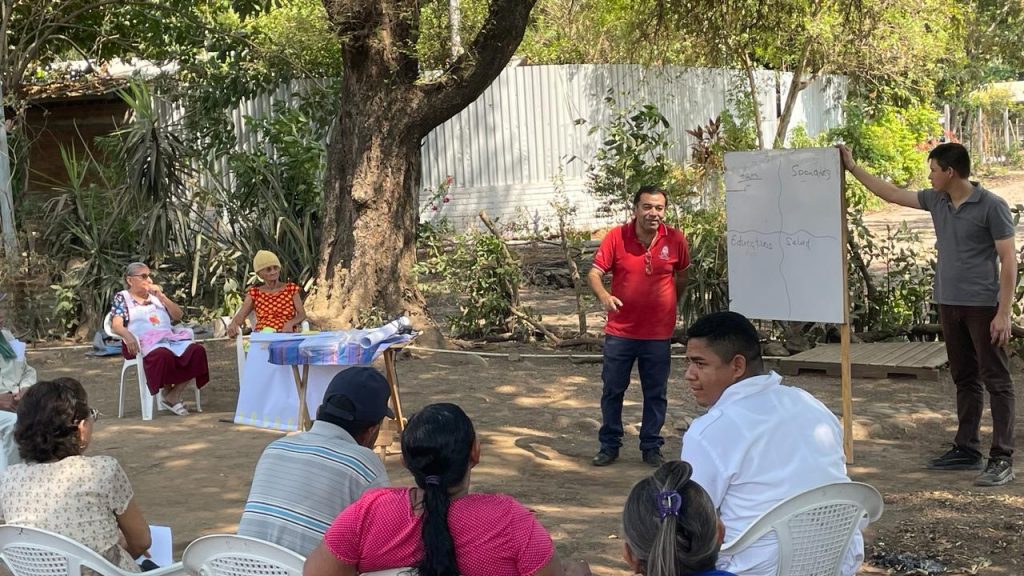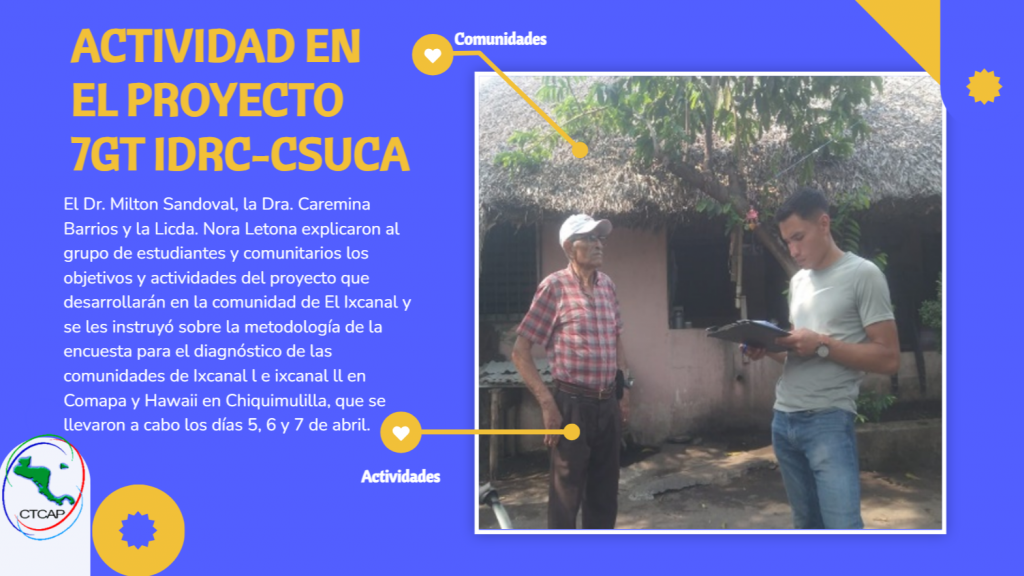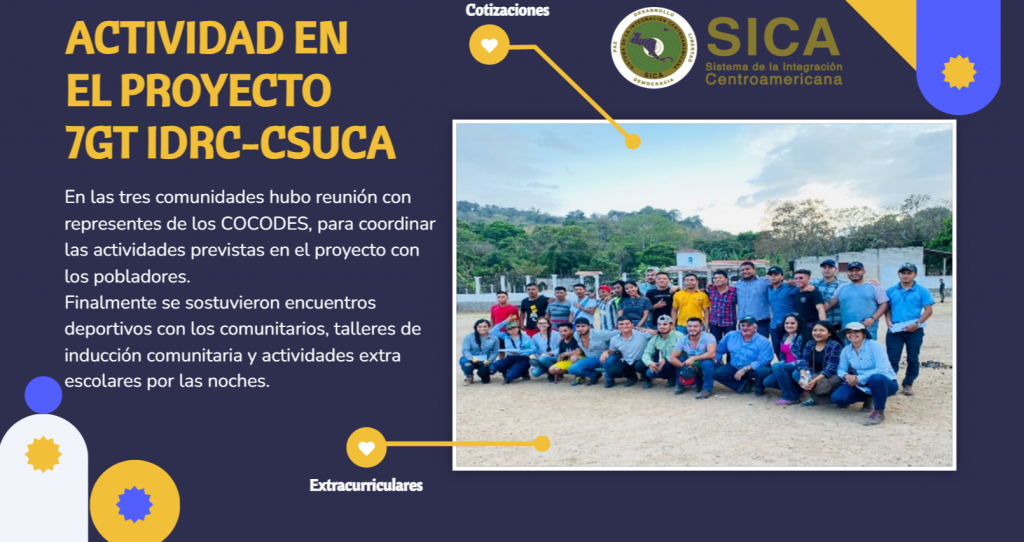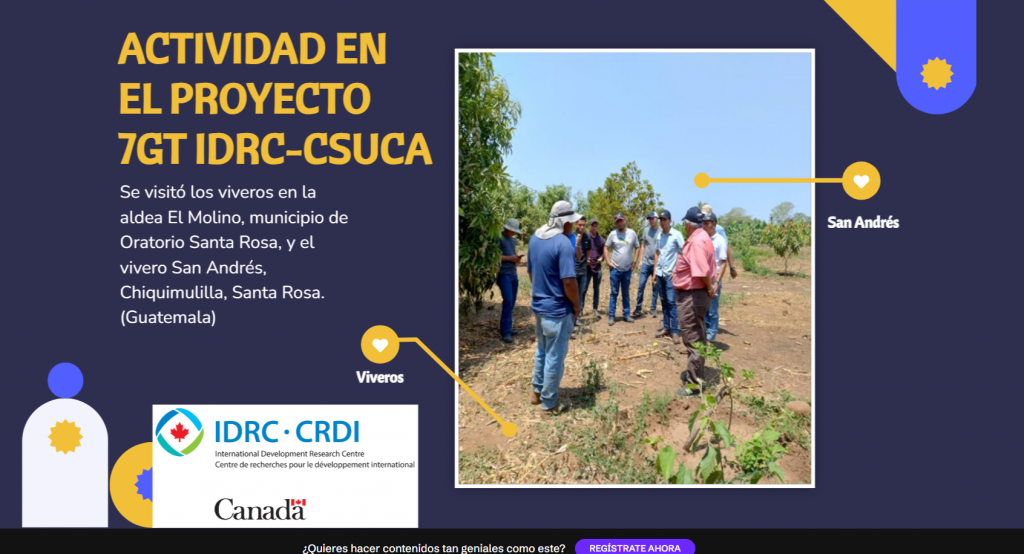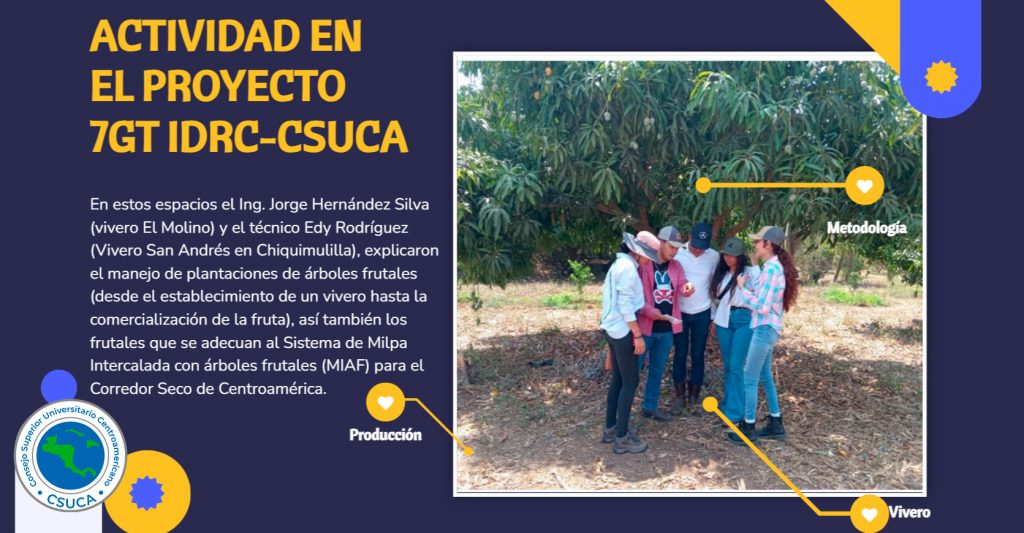Antigua Guatemala, 23 de mayo de 2024
Los días 23 y 24 de mayo en Ciudad de los Caballeros, Antigua Guatemala, se realiza el lanzamiento del proyecto “Una nueva generación de investigadores sobre adaptación climática para la reducción del riesgo de desastres” -CARP- por sus siglas en inglés, para la región Latinoamérica y el Caribe -LAC-, que se ejecuta a través del Consejo Superior Universitario Centroamericano -CSUCA- y la Universidad de Arizona, con el apoyo financiero de la Agencia de los Estados unidos para el Desarrollo Internacional -USAID-.
Este proyecto surge para la región LAC como parte de la iniciativa llevada a cabo por la Universidad de Arizona a través de los Doctores Corrie Hannah y Tim Finan, el cual, en su primera fase desarrollaron una plataforma de colaboración para 12 universidades africanas llamada “Peri Peri U” en coordinación con la Universidad de Stellenbosch de Sudáfrica y en la actualidad, con la visión de ampliar el programa y conformar un equipo global, hacen la invitación a la Universidad de Auckland de Nueva Zelanda, a cargo de la región de las Islas del Pacífico y al CSUCA, como socio estratégico en la Región LAC.
Para dar la bienvenida, Carlos Alvarado Cerezo, Secretario General de CSUCA señalo “Deseamos crear grupos dinámicos de investigación universitaria sobre adaptación al cambio climático y reducción del riesgo de desastres que puedan intercambiar experiencias, conocimientos y éxitos entre sí, con la finalidad de generar soluciones para beneficio de la sociedad”.
Por su parte, Tim Finan, Co-Director del programa por la Universidad de Arizona, ha mencionado la importancia del acrónimo del proyecto CARP, siglas que tienen como significado fuerza y resiliencia, representando así la importancia de este proyecto a nivel global, ante las necesidades que existen en las diferentes regiones, para enfrentar el cambio climático”.
Mientras que Corrie Hannah, Directora del programa por la Universidad de Arizona, indico el enfoque del proyecto es participativo, colaborativo y de co-creación, haciendo mención a una frase de los Indígenas del Pacífico que señala “Nada para nosotros, sin nosotros”, así como, los objetivos de formar una comunidad de investigadores en Latinoamérica y El Caribe, que busquen soluciones a los desafíos que tenemos ante el cambio climático y la reducción del riesgo de desastres.
Jerry Marcus, Director de la Oficina de USAID en Guatemala, hablo sobre la lucha que realiza Estados Unidos contra el cambio climático, teniendo como objetivo apoyar a más de 500 millones de personas, para el año 2030.
Eduardo Flores, Presidente de CSUCA, realizó una presentación sobre la Universidad de Panamá y las necesidades que existen en nuestra región ante el cambio climático.
El evento tiene como propósito sensibilizar sobre temas de importancia para la investigación, especialmente adaptación climática y reducción de riesgos de desastres en la región LAC, y la incorporación de temas transversales como género, equidad, igualdad, participación de comunidades indígenas y otras poblaciones vulnerables. Socializar el programa CARP con autoridades del CSUCA y redes de universidades de Latinoamérica, así como, sistematizar las prioridades de investigación para la región.
Cabe destacar que en este evento se presentarán las convocatorias a premios de investigación (Grants), las cuales darán la oportunidad a investigadores de carrera temprana y consorcios de colaboración de investigación, y estarán disponibles a través del siguiente enlace: https://csuca.org/es/carp-region-alc/.
